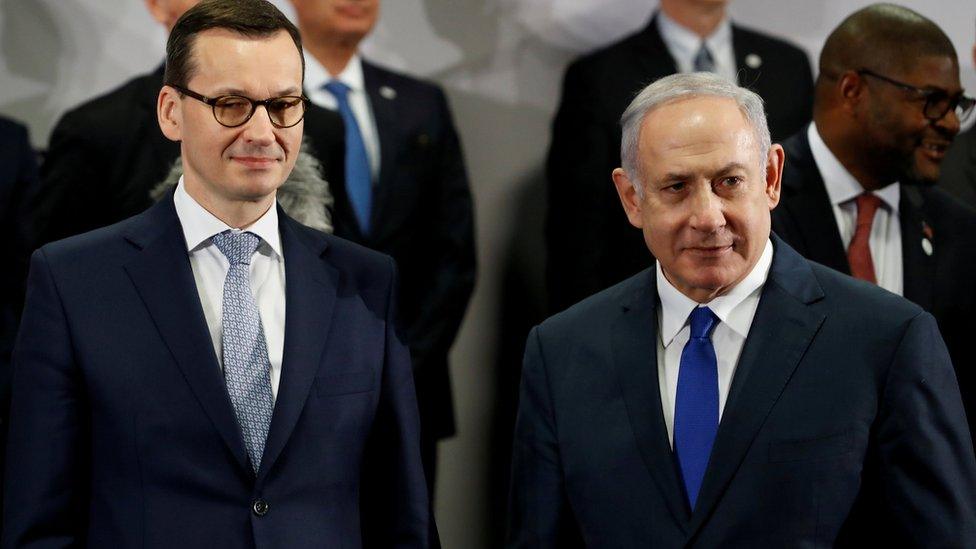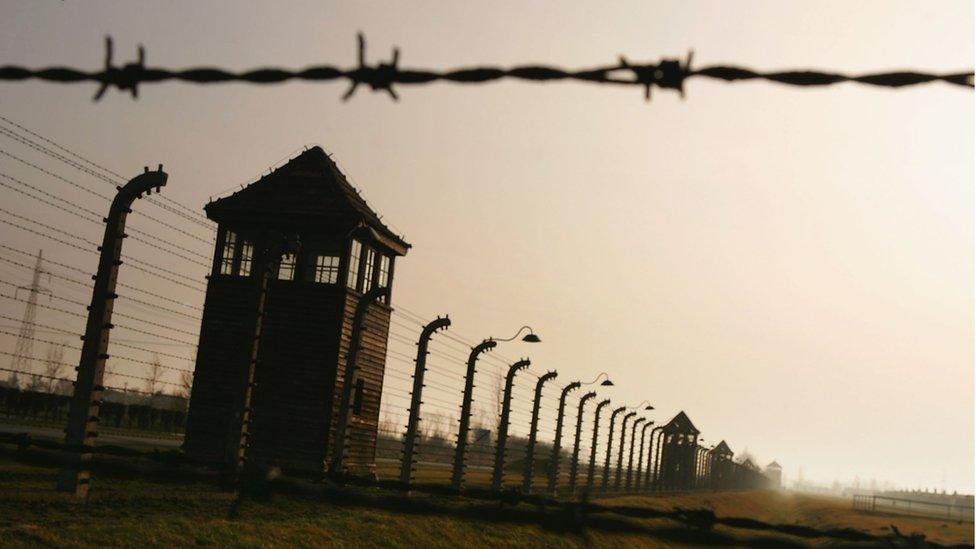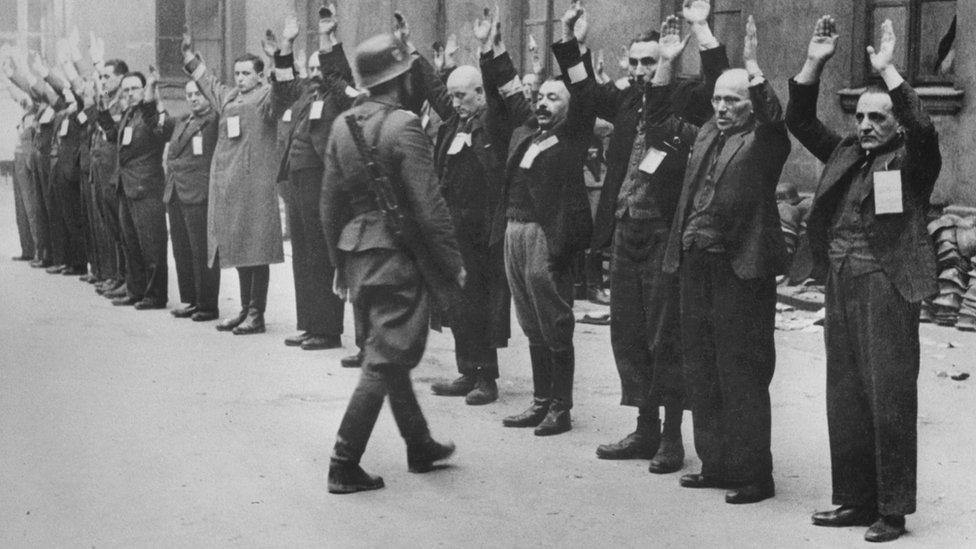Poland PM cancels Israel trip after Netanyahu's Holocaust comment
- Published

Prime Minister Mateusz Morawiecki (L) met Mr Netanyahu this month
PM Mateusz Morawiecki has cancelled a trip to Israel following comments on the Holocaust by Israeli counterpart Benjamin Netanyahu.
Mr Netanyahu was quoted in Israeli media as saying "Poles co-operated with the Germans" during the Holocaust.
He later issued a clarification saying he was not referring to the Polish nation or all Polish people.
Poland summoned the Israeli ambassador and on Sunday said Mr Morawiecki would not attend a summit on Tuesday.
The meeting, hosted by Israel, is of the Visegrad Group that represents the Czech Republic, Hungary, Poland and Slovakia.
Polish government spokesperson Joanna Kopcinska said: "Prime Minister Morawiecki told Prime Minister Netanyahu in a telephone call that Poland will be represented at the summit by Foreign Minister Jacek Czaputowicz."
What were Mr Netanyahu's comments?
Mr Netanyahu was on a visit to Poland on Thursday when his comments were reported in Israeli media, including Haaretz and the Jerusalem Post.
The Jerusalem Post said its version used the term "Polish nation", which it said it quickly amended.
Mr Netanyahu's office issued a clarification, saying: "In a briefing, PM Netanyahu spoke of Poles and not the Polish people or the country of Poland."
What has been the Polish reaction?
Mr Morawiecki took to Twitter to say there was "no Polish regime" during the Nazi occupation of Poland. , external
Israel's ambassador to Warsaw was summoned by the foreign ministry on Friday.
President Andrzej Duda said that if Mr Netanyahu had said what was first reported "Israel would not be a good place to meet".
On Sunday, Mr Morawiecki announced his trip would be cancelled.
Israel offered to host the meeting of the Visegrad group to strengthen ties with members of the European Union.

Poland has long objected to phrases which suggest shared responsibility during Nazi occupation
What's the historical context?
During World War Two, Poland suffered brutal occupation by the Nazi and Soviet regimes and more than five million Polish citizens, three million of them Jews, died.
In terms of the Holocaust, the country has for years objected to the term "Polish death camps", saying it implies complicity in the Nazi camps built on its soil during occupation.
In February 2018, Poland introduced a controversial law making it illegal to accuse the Polish nation or state of complicity in the Nazi Holocaust.
Israel challenged the legislation, its president, Reuven Rivlin, last year saying that while many Poles had fought the Nazis, "Poland and Poles had a hand in the extermination" of Jews during the Holocaust.
Poland agreed to change the law and it now no longer carries the threat of up to three years in jail.
- Published3 February 2018
